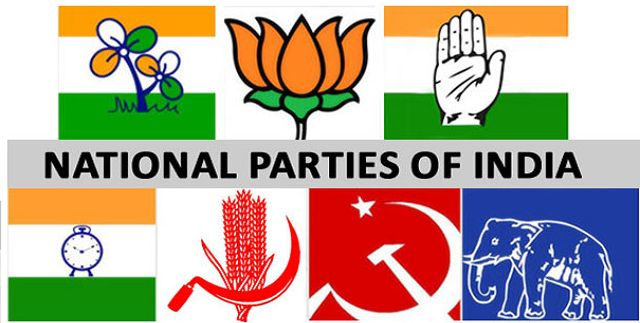Political Parties
Figure 2: No Copyright Infringement Intended
Context:
- Recently, election in Germany witnessed change of the regime.
About Political Party:
- A political party is an organised group of citizens who hold common views on governance and act as a political unit that seeks to obtain control of government with a view to further the agenda and policy they profess.
Role of Political Party:
- They are indispensable links between the people and the representative machinery of government.
- Political parties maintain a continuous connection between the people and those who represent them either in government or in the opposition.
Status of Political Parties:
- political parties in India are extra-constitutional, but they are the breathing air of the political system.
- Section 29A(5) of the Representation of the People Act, 1951 is the only major statutory provision dealing with political parties in India.
- It orders that a political party shall bear true faith and allegiance
- to the Constitution of India as by law established
- to the principles of socialism, secularism and democracy,
- would uphold the sovereignty, unity and integrity of India.
Issues with political Parties in India:
- Most of the parties are openly caste- or religious-based.
- Their finances are dubious and opaque.
- Almost all the parties — the Rashtriya Janata Dal, the Samajwadi Party, the All India Majlis-e-Ittehadul Muslimeen, the Indian Union Muslim League, etc. — are family fiefdoms.
- The Congress high command is only a euphemism for the Gandhi family.
- There are no periodical in-party elections in Indian parties except in a few like the CPI(M).
Germany Model:
- The Basic Law of the Federal Republic of Germany (1949) gives constitutional status to political parties.
- Political parties shall participate in the formation of the political will of the people.
- Their internal organisation must conform to democratic principles.
- They must publicly account for their assets and for the sources and use of their funds.
- They Shouldnt seek to undermine or abolish the free democratic basic order .
Way Forward:
- it is high time to constitutionalise political parties to ensure in-party democracy, to impart transparency in their finances, and to de-communalise them.
- The German model of constitutionalising political parties is more desirable for India than the U.S. and the U.K. models.
Criteria for National Parties:
- A party should win 2% of seats in the Lok Sabha from at least three different states.
- At a general election to Lok Sabha or Legislative Assembly, the party polls 6% of votes in any four or more states and in addition it wins four Lok Sabha seats.
- A party gets recognition as a state party in four states.
Criteria for State Parties:
A party has to fulfill any of the following conditions for recognition as a state party:
- A party should secure at least 6% of valid votes polled in an election to the state legislative assembly and win at least 2 seats in that state assembly.
- A party should secure at least 6% of valid votes polled in an election to Lok Sabha and win at least 1 seat in Lok Sabha.
- A party should win minimum three percent of the total number of seats or a minimum of three seats in the Legislative Assembly, which ever is higher.
- A party should win at least one seat in the Lok Sabha for every 25 seats or any fraction thereof allotted to that State.
- Under the liberalised criteria, one more clause that it will be eligible for recognition as state party if it secures 8% or more of the total valid votes polled in the state.




1.png)
